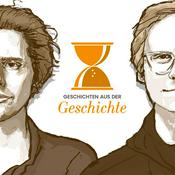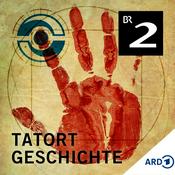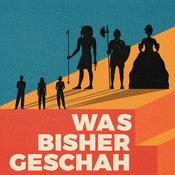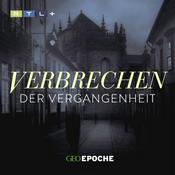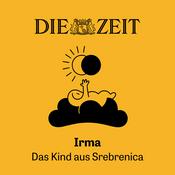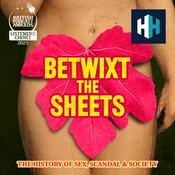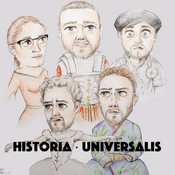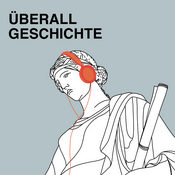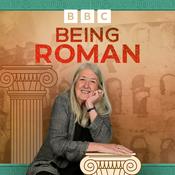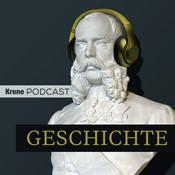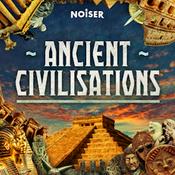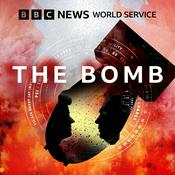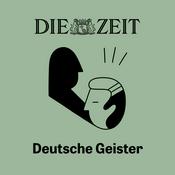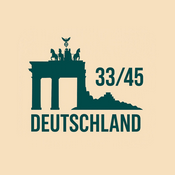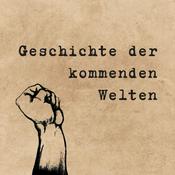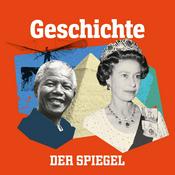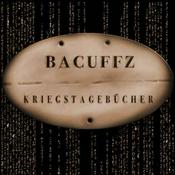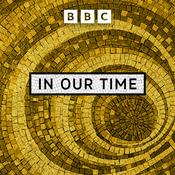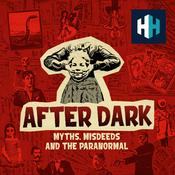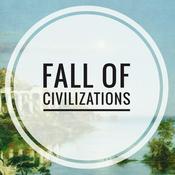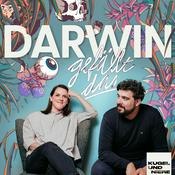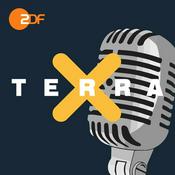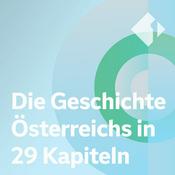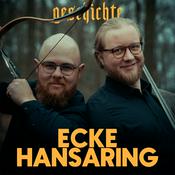342 Episoden
- I love street art. And I don’t care in what form. Beautifully crafted murals. Spraypainted gang tags. Scrawls on bathroom stalls. Even guerilla sticker mosaics on streetlights. I especially like how street art alters the narrative of a space. So, I was excited when I received a copy of Alexis Lerner’s book, Post-Soviet Graffiti. Post-Soviet street art has gotten little scholarly attention making the topic ripe for exploration and discussion. Post-Soviet graffiti shares a lot with its global counterparts–similar aesthetics, themes, culture, and political edginess. It also shares attempts at its co-optation by governments and corporations. But what makes political street art different in authoritarian countries like Russia? Is its power to circumvent media censorship and political control? What is street art, anyway? Who are the artists? And does graffiti have a political impact? The Eurasian Knot spoke to Alexis to get her thoughts and discuss the content and form of some of the graffiti she’s encountered over the last decade.
Guest:
Alexis Lerner is an Assistant Professor of Political Science at the United States Naval Academy. She’s the author of Post-Soviet Graffiti: Free Speech in Authoritarian States, published by University of Toronto Press. You can see the Alexis’ gallery of graffiti at https://postsovietgraffiti.com/
Hosted on Acast. See acast.com/privacy for more information. - A new youth subculture emerged in the Soviet Union in the late 1940s and early 1950s–the Stiliagi. Roughly translated as “the stylish,” these youths, the majority of whom were men, wore flashy hairstyles and bright colored clothes, danced to jazz, and were obsessed with Western aesthetics. And of course, this style broke Soviet conventions, challenged social norms, and expanded gender performance. Though the exact origin of the Stiliagi is murky, it arose alongside other Western youth subcultures–the beatniks, the mods, the rockers–of the immediate post-WWII libertinism. The Stiliagi put the Soviet Union squarely within the history of a more globalized youth culture. But, what did it mean to be a “stiliagi”? Who were they? How did the style offer alternative forms of Soviet masculinity? How did the Soviet authorities react to these youths? And how did this subculture differ from its Western counterparts? The Eurasian Knot spoke to Alla Myzelev about her new book on the subculture, Stiliagi and Soviet Masculinities, 1945–2010: Fashion as Dissent, to get some answers.
Guest:
Alla Myzelev is a Professor and Chair of the Department of Art History and Museum Studies at SUNY Geneseo. She is currently editing a book titled Challenging Imperial Narratives Through Visual Art and Material Culture in Eastern Europe and Central Asia. Her new book, Stiliagi and Soviet Masculinities, 1945–2010: Fashion as Dissent, is published by Manchester University Press.
Hosted on Acast. See acast.com/privacy for more information. - Soviet ideology called for the emancipation of women. Soviet women would be active participants in public life, unburdened by the home, children, and husbands, and serve equally in the building and defense of the Soviet state. Reality, however, was different, especially during WWII. Soviet women did serve in the Red Army and partisans. But life at war was more than the heroic tales we know today. Soviet women were often abused by their commanders and fellow soldiers or viewed as suspicious, weak, and even dangerous. Life under occupation was even worse. Many women turned to “survival prostitution” and fraternized with German soldiers to escape abuse, forced labor, and death. What strategies did Soviet women adopt to survive the war? How were they looked upon by the enemy, their neighbors, and compatriots? And what happened after the war to those who formed sexual relations with German soldiers? The Eurasian Knot spoke to Regina Kazyulina about gender, sex, and survival to get a window into this contentious and understudied chapter of WWII in the Soviet Union.
Guest:
Regina Kazyulina is a visiting assistant professor of history and the assistant director of the Center for Holocaust and Genocide Studies at Salem State University. Her book, Women Under Suspicion: Fraternization, Espionage, and Punishment in the Soviet Union During World War II published by University of Wisconsin Press.
Hosted on Acast. See acast.com/privacy for more information. - About two years ago, I was brought on to a podcast project started by the Global Studies Center at the University of Pittsburgh. The initial pitch was to produce a student-led podcast featuring two threatened artists that are part of the Pittsburgh Network for Threatened Scholars (PiNTS). I’m proud to feature the end result, The Art of War. It features two artists, the Yemeni street artist, Haifa Subay, and the Ukrainian poet, filmmaker, and musician, Oleksandr Fraze-Frazenko, about exile, art, war, and adjusting to life in Pittsburgh. I hope Eurasian Knot listeners enjoy it because I’m really proud of having been a part of it. And especially, seeing how our students, Jojo Ellis, Kyla Parker, and Lily Acharya proved to be naturals in the audio craft.
Art of War
Produced by Lily Acharya, Jojo Ellis, Kyla Parker, David Greene, Shannon Reed, and Sean Guillory.
Editing and sound design: Sean Guillory
Mixed and mastered; Daniel Cooper, Podcuts Editing
Music: Blue Dot Sessions
Hosted on Acast. See acast.com/privacy for more information. - What is peat? We had no idea until the Eurasian Knot spoke to Katja Bruisch about how this coal-like soil was an energy source in Russia and the Soviet Union. Found in wetlands, peat is the extracted top soil that is dried and burned for fuel. It was a marginal, but important, energy source in industrialization. Peat was also used as a localized source to produce electricity for Lenin’s Electrification campaign. Because, as the old man put it, “Communism is Soviet power plus the electrification of the whole country.” But, Bruisch tells us, extracting peat was labor intensive, and into the Soviet period, increasingly done by women. Peat harvesting created communities and culture. It also significantly altered local ecologies. How crucial was peat in modernization? Why was it used instead of other energy sources? And can it serve as a present-day alternative? The Eurasian Knot posed these questions and more to Katja Bruisch about her book, Burning Swaps: Peat and the Forgotten Margins of Russia’s Fossil Economy published by Cambridge University Press.
Guest:
Katja Bruisch is an environmental historian at Trinity College Dublin interested in energy, resource extraction and land-use in the Russian Empire and the Soviet Union. Her new book is Burning Swamps: Peat and the Forgotten Margins of Russia’s Fossil Economy published by Cambridge University Press.
Send us your sounds!
Patreon
Knotty News
Hosted on Acast. See acast.com/privacy for more information.
Weitere Geschichte Podcasts
Trending Geschichte Podcasts
Über The Eurasian Knot
To many, Russia, and the wider Eurasia, is a riddle, wrapped in a mystery, inside an enigma. But it doesn’t have to be. The Eurasian Knot dispels the stereotypes and myths about the region with lively and informative interviews on Eurasia’s complex past, present, and future. New episodes drop weekly with an eclectic mix of topics from punk rock to Putin, and everything in-between. Subscribe on your favorite podcasts app, grab your headphones, hit play, and tune in. Eurasia will never appear the same. Hosted on Acast. See acast.com/privacy for more information.
Podcast-WebsiteHöre The Eurasian Knot, ZEIT Geschichte. Wie war das noch mal? und viele andere Podcasts aus aller Welt mit der radio.at-App
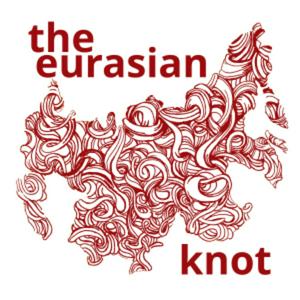
Hol dir die kostenlose radio.at App
- Sender und Podcasts favorisieren
- Streamen via Wifi oder Bluetooth
- Unterstützt Carplay & Android Auto
- viele weitere App Funktionen
Hol dir die kostenlose radio.at App
- Sender und Podcasts favorisieren
- Streamen via Wifi oder Bluetooth
- Unterstützt Carplay & Android Auto
- viele weitere App Funktionen


The Eurasian Knot
Code scannen,
App laden,
loshören.
App laden,
loshören.




